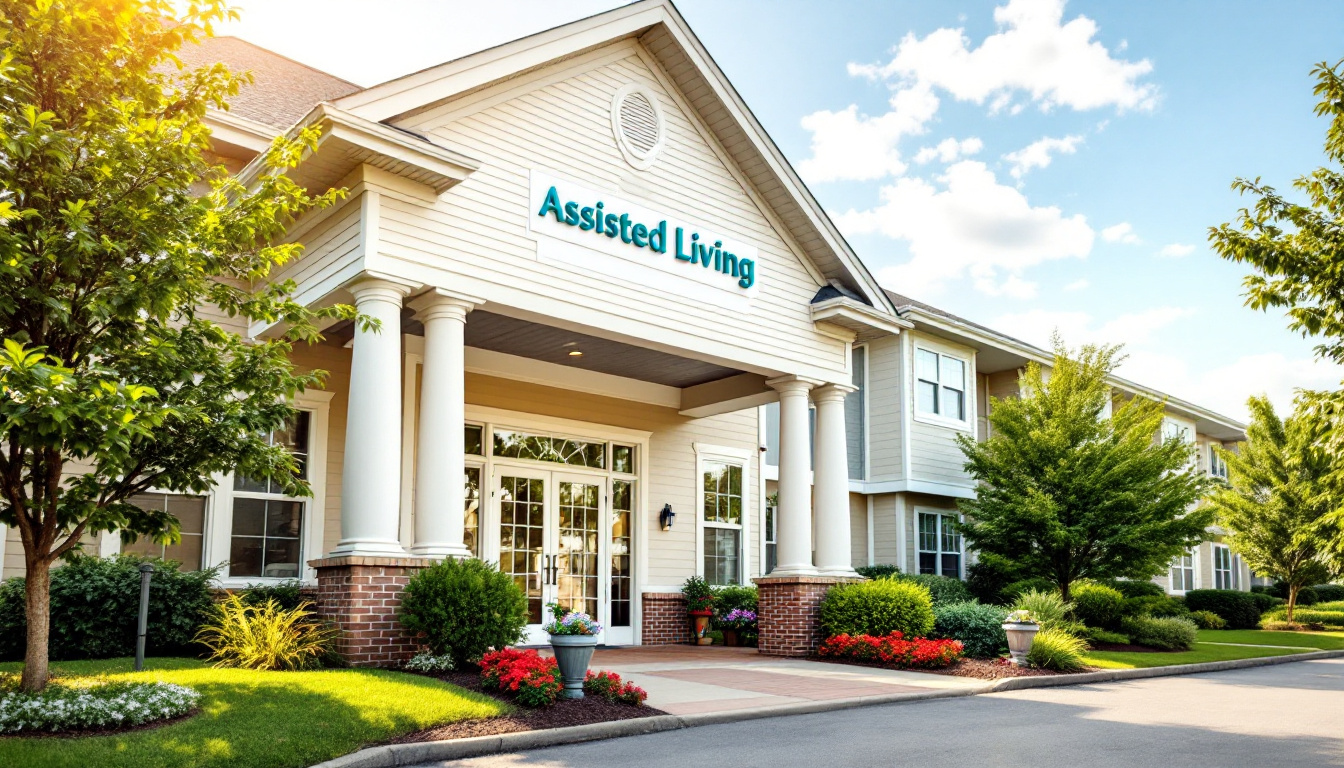Common Myths About Hospice Care and the Truth Behind Them
Debunking Misconceptions: Understanding Hospice Care Better

Unveiling the Truth Behind Hospice Care
Hospice care is often misunderstood, with many myths clouding the true purpose and scope of this compassionate service. This article aims to dispel common misconceptions, providing clear, factual information to help patients, families, and caregivers make informed decisions about end-of-life care.
What Everyone Should Know About Hospice Care

What are the key facts everyone should know about hospice care?
Hospice care is specialized medical and supportive care for individuals with serious, terminal illnesses who are expected to live six months or less. Its primary focus is on comfort, pain management, and improving quality of life. It is provided wherever the patient lives—commonly at home, in nursing homes, or hospitals—and involves a multidisciplinary team that offers medical, emotional, spiritual, and psychosocial support around the clock. Most hospice services are covered by Medicare, Medicaid, and private insurance, often with minimal out-of-pocket costs, and patients have the freedom to leave or re-enter hospice care at any time. The goal of hospice is to help patients live as fully as possible during their final days, emphasizing dignity and personalized care. It also offers bereavement support to families after a loved one's death. According to research from the NHPCO's 2024 'Facts and Figures,' hospice care continually adapts by addressing a diverse range of diagnoses including cancer, heart disease, dementia, and respiratory illnesses, highlighting the importance of holistic, patient-centered support.
What does hospice care involve, and what services are typically provided?
Hospice care centers on providing comfort and support for individuals nearing life's end. It addresses not only pain and symptom relief but also emotional, spiritual, and social needs. The care team typically includes doctors, nurses, social workers, spiritual counselors, volunteers, and aides, all working together to uphold the patient’s dignity. Services encompass symptom and pain management, emotional and spiritual counseling, assistance with advance care planning, and family support. Care settings vary from the patient's home to nursing homes and hospitals, with options for inpatient or respite care during crises. Essential to hospice is its focus on comfort rather than cure, supporting individuals in living meaningfully until they pass.
What is the role of hospice care in end-of-life treatment, and what services do patients receive?
Hospice care plays a crucial role by prioritizing comfort and quality of life for terminally ill patients. It involves a comprehensive team providing medical, emotional, and spiritual support, typically in the patient's own environment. Services include pain relief, management of symptoms like breathlessness and fatigue, and attention to emotional and spiritual well-being. Advance care planning is integrated into hospice, ensuring that patients’ preferences are honored. The team also offers emotional support and bereavement services for families, fostering a holistic approach to end-of-life care. While curative treatments are generally stopped, ongoing management of other conditions continues to support a peaceful, dignified transition.
What are the core principles or philosophy guiding hospice care?
The guiding philosophy of hospice care is rooted in compassion, respect, and dignity. It adopts a holistic, patient- and family-centered approach, aiming to improve quality of life rather than pursue cures. Hospice recognizes death as a natural part of life and emphasizes comfort, emotional support, and respect for individual wishes. This approach involves tailoring services to reflect each patient’s goals, values, and cultural beliefs, supporting their right to die pain-free and with dignity. Fundamental to hospice is acceptance and understanding that while life is finite, its final stages can be lived with peace and meaningful connection.
Are there any misconceptions or stereotypes about hospice care that can be clarified?
Many misconceptions surround hospice care. A common myth is that it is only for those who are actively dying or have given up hope. In reality, hospice can be introduced earlier to manage symptoms and enhance quality of life, and patients can choose to revoke hospice care at any point if their condition improves or they wish to pursue curative treatments. Another misconception is that hospice is solely for cancer patients, but it actually benefits individuals with various chronic and serious illnesses, such as heart failure, dementia, COPD, and neurological conditions. It is also a misconception that hospice hastens death; however, evidence shows that hospice can prolong life by reducing stress and effectively managing symptoms. Ultimately, hospice is a care philosophy that supports dignity, comfort, and peace, and it is accessible, affordable, and adaptable to individual needs, reducing stigma and promoting timely, compassionate end-of-life support.
Addressing Common Myths and Misconceptions About Hospice

What are some common misconceptions or myths about hospice care and what is the truth behind them?
A widespread myth is that hospice care signifies giving up hope or that it is only for the very last days of life. In truth, hospice is centered on enhancing quality of life through comprehensive care that manages symptoms, offers emotional and spiritual support, and respects patient wishes. It is not about hastening death but about providing comfort and dignity.
Many people believe that hospice is only for patients who are imminently dying—that is, within days or weeks of death. However, studies show that the median length of hospice service is around 24 to 76 days, and some patients are under hospice care for longer periods, sometimes months or even years, especially when their condition stabilizes or improves. Hospice can begin after a prognosis of six months or less, but early enrollment can provide benefits such as better symptom control and emotional support.
Another common myth is that hospice care is exclusive to cancer patients. In reality, over 50% of hospice patients have diagnoses other than cancer, including heart failure, dementia, neurological conditions, chronic lung diseases, and stroke. Hospice services are available for any chronic, progressive, and life-limiting illness, regardless of diagnosis.
Many worry that hospice is expensive or not covered by insurance. The fact is that Medicare, Medicaid, and most private insurance plans fully cover hospice care, including medications, supplies, and visits. This coverage makes hospice accessible and affordable for most patients, removing financial barriers to receiving comprehensive end-of-life care.
Some think that a patient must have a DNR order to qualify for hospice; however, this is not true. A DNR (do-not-resuscitate) is a personal medical choice and not a requirement for hospice eligibility. Patients can opt to have resuscitation efforts or continue with other treatments if they wish. Hospice emphasizes patient autonomy and shared decision-making.
Overall, misconceptions about hospice often stem from misunderstandings about its purpose. In reality, hospice is a compassionate approach designed to support patients and families in living as well and comfortably as possible until the end, respecting individual preferences and promoting quality over quantity of life.
Do you need to be a DNR to receive hospice care?
No, you do not need to be a do-not-resuscitate (DNR) order holder to qualify for hospice. While many patients choose to have a DNR to guide their care toward comfort and avoid unwanted resuscitation, this is a voluntary decision entirely based on personal wishes and values.
Hospice organizations recognize that each individual has unique beliefs and goals. Whether a patient has a DNR or not, they can access hospice services as long as they meet the medical criteria—typically a prognosis of six months or less.
Having a DNR is a personal choice and can be discussed with healthcare providers, but it does not influence eligibility or the quality of hospice care received. Patients retain full control over their treatment options, including whether to continue or halt resuscitation efforts and other treatments.
Ultimately, hospice aims to honor each patient's preferences, providing tailored care to ensure comfort and dignity without imposing rigid medical directives. The decision about a DNR is an individual one and does not restrict access to compassionate end-of-life care.
The Impact of Hospice Care on Patients and Families

Support for emotional and spiritual needs
Hospice care prioritizes not just physical comfort but also addresses emotional and spiritual well-being. Patients nearing the end of life often face fear, anxiety, grief, and questions about their spiritual beliefs. Trained hospice professionals, including chaplains and counselors, work to provide spiritual support tailored to each individual's beliefs and preferences. This holistic approach helps patients find peace, meaning, and reassurance during their final days.
Facilities offer emotional counseling and support groups for patients and families. These services foster emotional resilience, help cope with the dying process, and provide clarity about personal values and spiritual questions. Overall, addressing emotional and spiritual needs fosters dignity, reduces suffering, and enhances quality of life.
Family involvement and support services
Family participation is a core aspect of hospice care. Families are encouraged to be involved in daily care, decision-making, and planning. Hospice teams offer education on how to care for their loved ones, manage symptoms, and handle emergencies, empowering families with practical skills and confidence.
Support services extend beyond patient care. Caregivers receive training to reduce stress and prevent burnout, and professional staff are available for guidance around the clock. Support groups and respite care give families a break, helping them maintain their health and well-being.
Hospice professionals recognize that caring for a dying loved one can be emotionally taxing. Therefore, they ensure families receive emotional support and counseling during this challenging time, which fosters stronger family bonds and eases the grieving process.
Bereavement counseling and grief support
Grief is a natural response to loss, but the journey is often complex and emotionally demanding. Hospice care includes comprehensive bereavement services, which continue for at least one year after the patient's passing. These services may involve individual counseling, support groups, and memorial events designed to help families process their grief.
Counselors work to normalize feelings of sadness, anger, or confusion and provide strategies for coping. The ongoing support acknowledges grief's long-term nature and helps families adjust gradually to life after loss. This compassionate approach aims to provide comfort, promote healing, and prevent complicated grief.
Benefits of early hospice enrollment
Starting hospice care sooner rather than later offers numerous advantages. Patients gain access to a broader range of symptom management options, allowing for better control of pain and discomfort. Early enrollment also facilitates emotional and spiritual preparation, giving patients space to express their wishes and resolve unfinished business.
Studies have found that patients who enter hospice early tend to live longer than those who delay. The holistic, personalized care provided can improve overall quality of life, ensuring that each remaining day is lived with dignity and comfort. Early hospice care helps patients enjoy meaningful interactions with loved ones and participate in cherished activities, making their final months more filled with peace and purpose.
| Aspect | Benefit | Additional Details |
|---|---|---|
| Emotional & Spiritual Support | Helps find peace, meaning, and reassurance | Provided through counseling, chaplains, and tailored interventions |
| Family Support Services | Reduces caregiver stress, educates, and involves families | Includes training, emotional counseling, and respite care |
| Bereavement Services | Facilitates healing and adjustment after loss | Ongoing counseling, support groups, memorial activities |
| Early Enrollment | Enhances quality of life and may extend survival | Broader symptom management, emotional prep, improved comfort |
This comprehensive approach underscores hospice care's role in enriching lives—promoting dignity, alleviating suffering, and fostering connection in the closing chapter of life.
Empowering Informed Choices in End-of-Life Care
Understanding the realities of hospice care is essential for making informed decisions that respect patient wishes and enhance quality of life. Dispelling myths about hospice helps families and individuals see it not as giving up, but as embracing compassionate support that prioritizes dignity, comfort, and meaningful living. As hospice services continue to evolve and provide comprehensive, patient-centered care, awareness and education are key to ensuring that everyone can access the support they need during life’s final chapter.
References
- 12 Hospice Myths & Misconceptions: Separating Fact from Fiction
- Challenging 34 Hospice Myths & Misconceptions: Abramson
- Debunking Hospice Myths: Learn the Facts Behind 7 Common ...
- Hospice Myths and Facts
- 10 Hospice Care Myths - Compassus
- Infographic: Four Myths About Palliative and Hospice Care
- Learn the Truth Behind Four Common Hospice Myths - McLeod Health
- Dispelling Hospice Myths | Common Hospice Misconceptions & Facts
- Silencing 8 Hospice Myths - The Truth About Hospice Care - 3HC
- What is hospice care? 6 myths about this end-of-life option - NPR





































































































